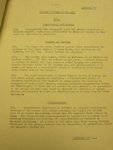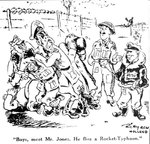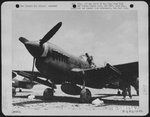I have seen some vague references to P-40 Warhawks using 4.5 inch rockets in Africa and Burma. I have also heard that P39s were using rockets by the time of TORCH. I know Russian P39s had rockets by this time.
While completely different: Does anyone know when the US 90mm AA gun was first used ground-to-ground?
Thanks.
While completely different: Does anyone know when the US 90mm AA gun was first used ground-to-ground?
Thanks.



